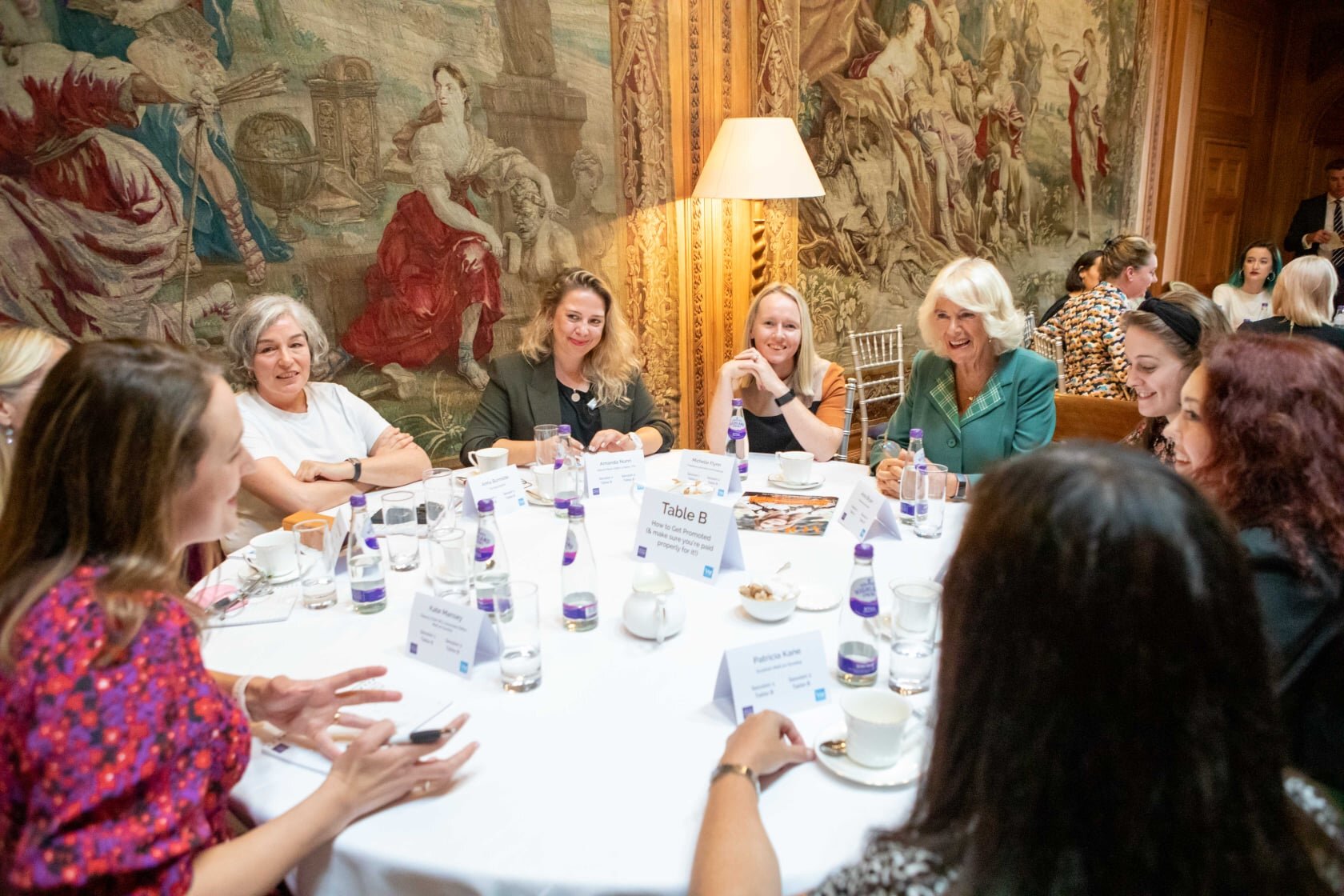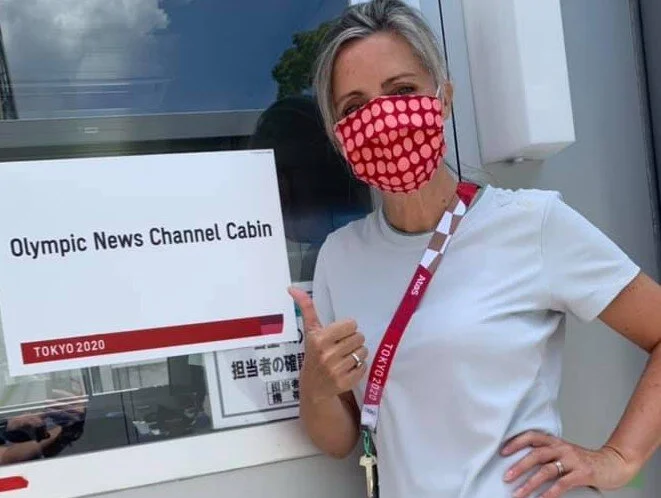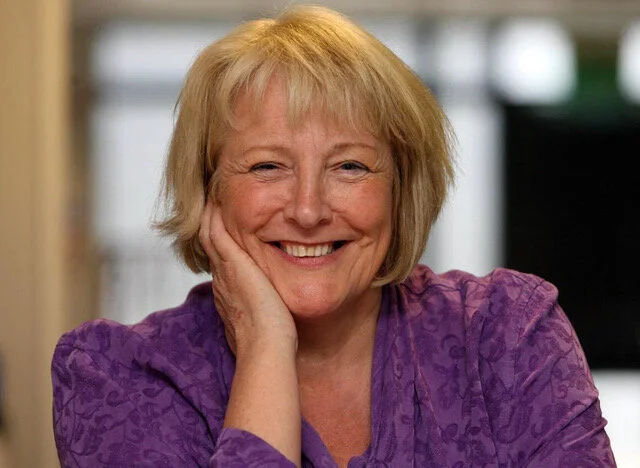WIJ Scotland’s most recent book salon featured Vicky Allan in conversation with Anna Burnside discussing how to get started on, pitch and complete non-fiction book projects.
Here she shares what she has learned through writing three books - Taking the Plunge, For the Love of Trees and Still Hot! - as well as some top tips gathered from other leading writers.
Sometimes the process of preparing for a talk is as useful for the person doing it as it is for the audience. This WIJ Scotland book salon made me think about what I’d learned about writing non-fiction so far - and what I still wanted to learn.
In preparation, I chatted to friends and fellow authors. Taking The Plunge, Still Hot! and For The Love Of Trees all follow a fairly similar formula and are quite journalistic. I was interested to see what tips writers had for other types of non-fiction. This is the jist:
Some kind of story-telling should be at the heart of it;
If you’ve already done a lot of research, focus on what’s really interesting and get rid of the rest;
Break it down into parts to make it more manageable;
Be willing to throw things out. Margaret Atwood says the wastebin is your friend, invented for you by God;
Find a writing buddy who is also working on a book or is into your subject and workshop together;
Make sure your subject is something you really feel driven to research, think about and communicate – you are going to be with this subject for a while.
I had some really interesting chats along the way.
My friend Chitra Ramaswamy wrote Expecting, a memoir of her pregnancy. Its structure was almost like nine essays. Her next book, to be published by Canongate, is about Kindertransport refugee Henry Wuga. She describes it as: “a hybrid of biography and memoir about Henry Wuga, whom I’ve been writing about for almost 10 years, our friendship, and search for belonging over a century of history.”
At the end of our conversation that we started to talk about something we both felt was key, this idea of permission. Women, particularly women who have children and a busy family life, need to give themselves permission to take the time required to write a book.
For me that meant marking it in the diary. My first book commission, for Taking The Plunge, came with the extraordinarily terrifying deadline of 10 weeks. After a fortnight with my head in the sand, a friend who was training to be a life coach made me think realistically about the amount of time I needed. I blocked it off in my calendar.
I also went away for a few overnighters in order to write. But that might not work for your life. I found Cal Newport’s Deep Work helpful on the subject of finding time for longer writing, although it’s disappointing that his examples are mainly men.
Chitra also gave these tips:
“Don’t expect to find a way of doing things or a formula that you just use again and again because books can be very different. Each book is a different process. Each one is its own thing with its own objectives, its own mode of craft. That’s similar to feature writing – it’s about finding the right universe for each project.”
“Every time you return to your manuscript there’s a temptation to go back and read it through – but writing a book is an act of confidence and you don’t want to flag or lose momentum by going back over the old stuff. You can find that by the time you’ve reworked it that you’re in a slump. In order to keep moving forwards don’t reread.”
And …
“Chances are you are going to become a better writer of the book than you are at the start of it. So keep going – you can come back and rewrite the start at the end.”
But central for me was this idea of permission – not just to take the time, but to own your subject in some way.
Another key thing about the transition from journalism to non-fiction book-writing may be finding a new voice, one that works for the book you are writing. Sue Armstrong has written several looks of science narrative non-fiction, including Borrowed Time: The Science of How And Why We Age and P53: The Gene That Cracked The Cancer Code.
She told me this: “My big story for the previous two decades or so had been the AIDS pandemic, which I had followed and reported on from the frontline of many countries. I'd done articles for journals and newspapers, lots of radio stuff and latterly got very involved in writing longer-form reports for UNAIDS on various aspects of the pandemic.
“I had loved it, but was finally royally burnt out and keen to turn to new pastures. But in changing direction, I needed to find a new voice – my own personal voice. I was inhibited by my long adherence to the rules and style of report writing for the UN. There I, as the writer, had studiously to be outside the picture, just looking in.
“I wanted a new standpoint. So I enrolled on a course in writing from life with the Arvon Foundation. It was terrific. Five days holed up in an ancient old farmhouse in Devon with a bunch of fellow writers and our mentors, talking and talking about writing, doing very instructive and imaginative exercises and getting feedback. It was very intense and hugely liberating. I felt free to become part of the stories I was telling, where it was appropriate. Free to make the narrative more intimate.”
More great advice from other writers came in via Twitter.
Ian Fraser, author of Shredded: “Interviewing a wide range of people from all levels inside RBS/NatWest was key. That gave me a feel for the group's internal culture and its consequences. There was also a greater chance of picking up amusing and/or telling anecdotes.”
David Pratt, author of Intifada: The Long Day Of Rage : “It’s not journalism so you can slow down and explore tangents. Also, it’s vital to make it accessible. Too many non-fiction efforts fall somewhere between journalism and academic writing that can be rather uninspiring. As ever it’s about telling a good yarn.”
Jemma Neville, author of Constitution Street: “I make different narrative pathways to help readers navigate volume of factual info – timelines, maps, character list, inventories –then mostly remove them in final drafts when the flow and pace in place.”
Nick Booth, author of The Thieves of Threadneedle Street, ZigZag, and The Search For Life On Mars: “A book is a marathon. It isn’t about doing five sprints (as journalism is on a daily). It’s about getting it all on the page. It is about usable wordage. The key is what I call carpentry – chop, move change. Then you have to keep going. By the end it’s like driving through fog. You wonder if you will get there, but you will. It all comes together. It has a different rhythm to journalism but you finish, you leave, you shape and then get into shape.”
Isabel Hardman, author of The Natural Health Service: “Best advice I was given when I signed for book one was from Nick Cohen. He said, don’t try to get it perfect, just bloody get it done. The perfect stuff comes later (hopefully). Also use Scrivener.”
Lesley Riddoch, author of Blossom and Huts: A Place Beyond: “Tell stories. Not fictitious ones, real stories that illustrate the point. This is even more important when the comforts of easier-to-digest fiction are missing.”
Peter Ross, author of Daunderlust and A Tomb With A View: “When I wrote Tomb With A View, I sometimes had to remind myself that it wasn’t journalism and that I didn’t have to tell readers everything all at once; I could afford to slow down the flow of information. The other thing is that while the idea of writing a book can feel overwhelming, I found it helpful to think of it as a dozen or so long-reads.”
Sara Sheridan, author of Where are the Women? An Imagined Female Atlas of Scotland and many works of fiction: “It's easy to get overwhelmed with research material so I try to focus on which bits of information I'd most like to read if I knew nothing at all. What really excites me? Then I build the narrative round those high points and the key facts.”
You might also be interested in the following resources:
Storycraft: The Complete Guide to Writing Narrative Nonfiction by Jack Hart. I actually read this when I wasn’t even thinking about writing non-fiction and found it useful in terms of thinking about story in journalism.
Malcolm Gladwell’s talk on the Masterclass app. It’s worth subscribing for a month and listening to a few of the other talks, including Margaret Atwood on writing fiction.
























